WestCoastChestnut
Tissue Culture Luvall's Monster Chestnut Trees
Tissue Culture Luvall's Monster Chestnut Trees
Couldn't load pickup availability
Tissue culture Luvall's Monster Chestnut trees grown to ~30 inches tall and shipped bare root. The trees will be packed for safe shipping and should be removed from the bag and heeled upon arrival and then watered until ready to plant.
The photos are of the trees in the various stages of propagation & growth. Orders can be fulfilled as bare root plants in the winter (most common) or as liners to nursery customers in the spring.
About the Luvall's Monster Cultivar
While it's specific pollen parent is unknown, Luvall's Monster cultivar is believed to be the result of Chinese chestnut pollenated Japanese and American hybrid (Castanea Mollissima x Crenata/Dentata). The result is a fast growing, high yielding cultivar that produces tasty, easy-to-peel nuts. Some growers report that the nuts do not store as well as other cultivars, so best to prepare and eat the nuts close to harvest.
As a result of genetic fingerprinting our trees as well as digging up chestnut genetic research done years ago my researchers in the Midwest, it's clear that there are likely a range of genetically diverse trees that go by the name "Luvall's Monster." Therefore, we cannot guarantee that these trees are genetically identical to those commonly referred to as Luvall's Monster in various parts of the U.S. You can read more about these discoveries and what it means for growers here.
We deliver trees to growers in all parts of the U.S.. Before selecting a cultivar for your farm, we recommend speaking with growers in your area, extension agents, or other advisors to select the best cultivars for your specific growing conditions.
Recommended Pollinizers:
Luvall's Monster is considered "male pollen sterile," so needs to be planted with male pollen producing cultivars or seedlings to produce a crop. For more information on pollinizer selection see our Resources Page.
About Tissue Culture Propagation
Chestnuts are notoriously difficult to get into tissue culture. This means growers have had to use other forms of propagation, such as grafting and air layering to plant or expand an orchard. Non-tissue culture forms of propagation are both time intensive and have very high failure rates. For example, it's not uncommon for 50% of crafted chestnuts to die back to the graft within a few years.
Tissue culture chestnuts do not require grafting or air layering. There is no root stock and scion. Each tree is grown from a small piece of juvenile wood and is therefore a single, uniform tree.
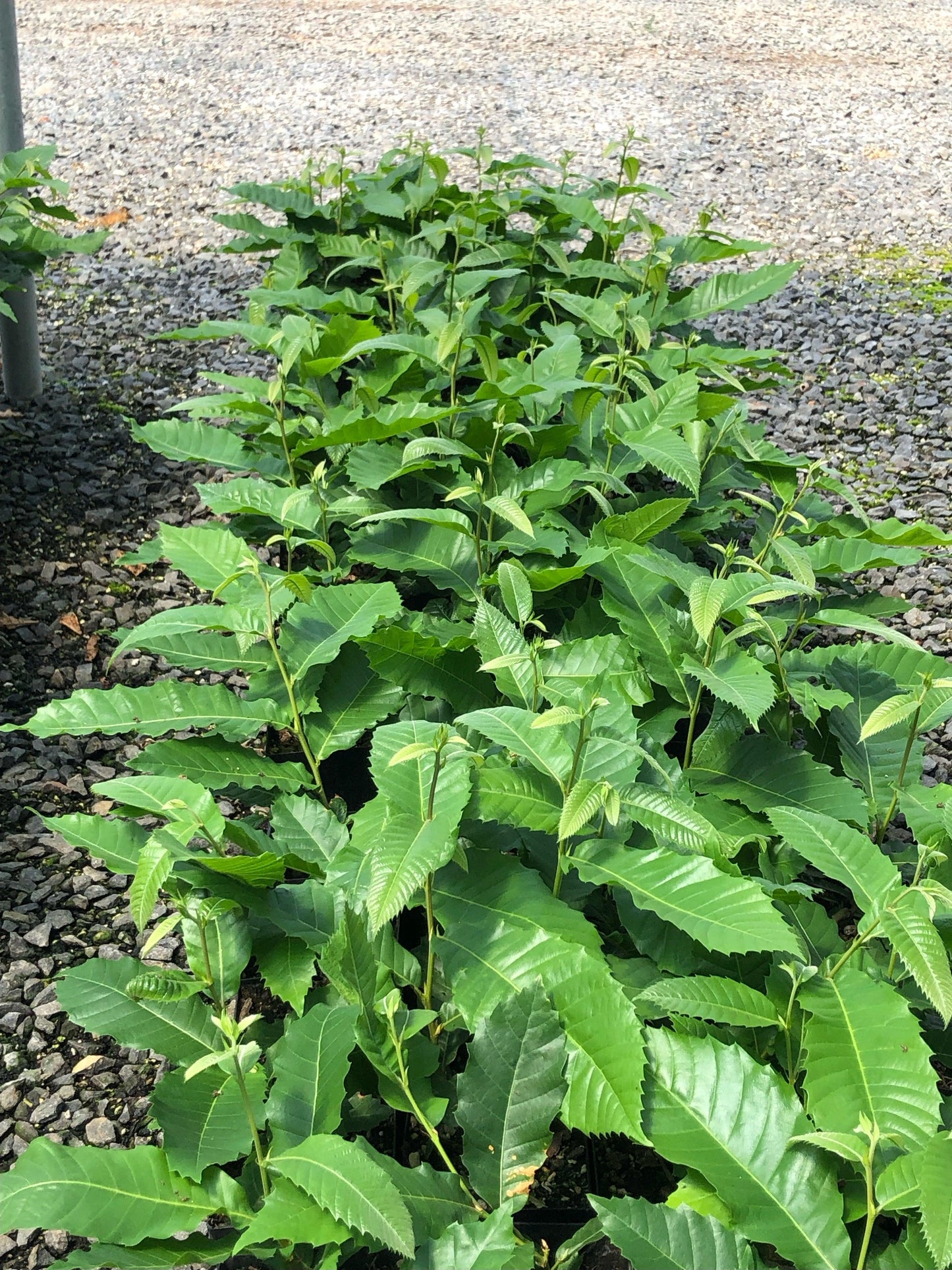
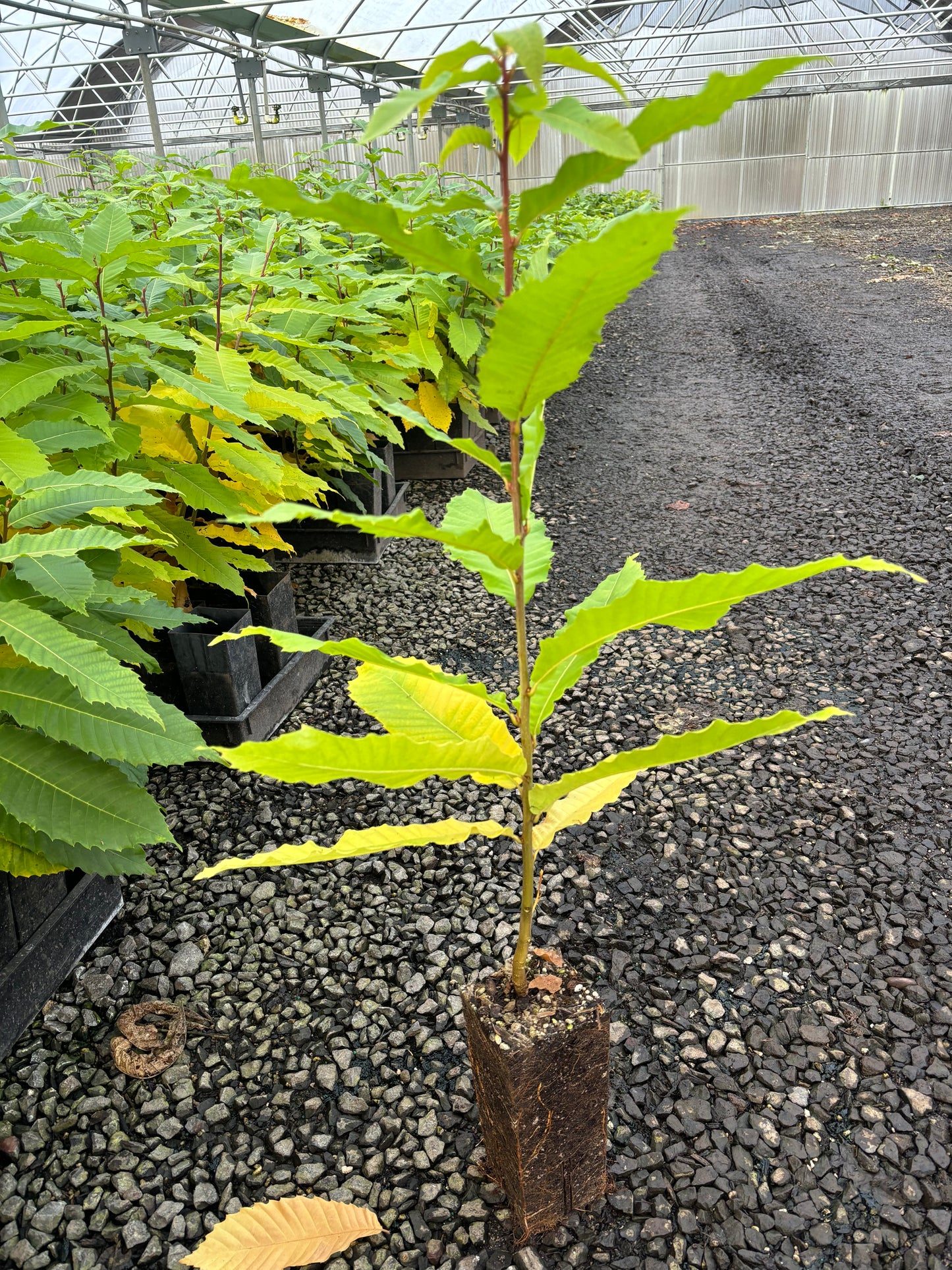
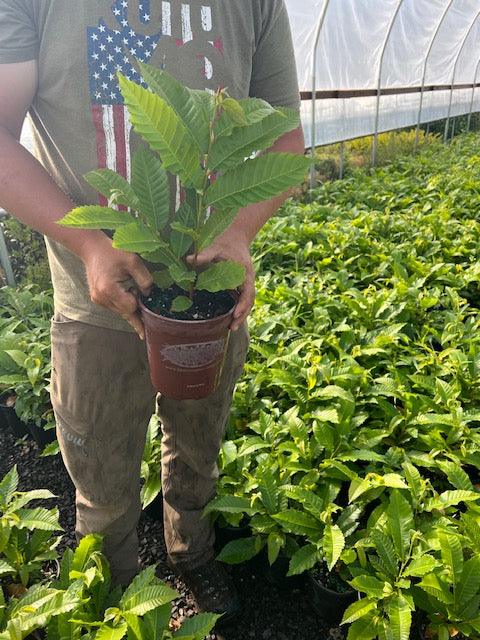
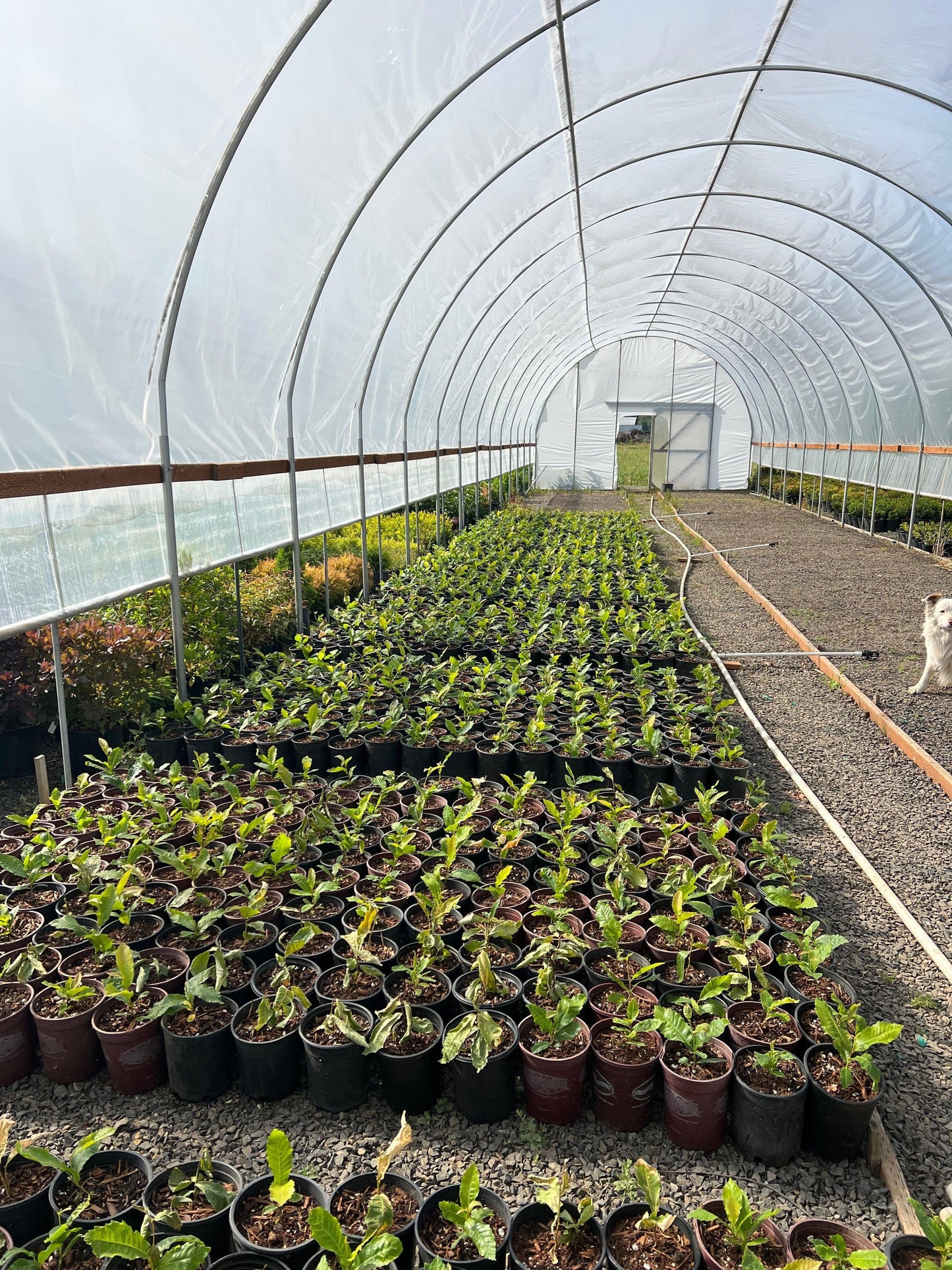
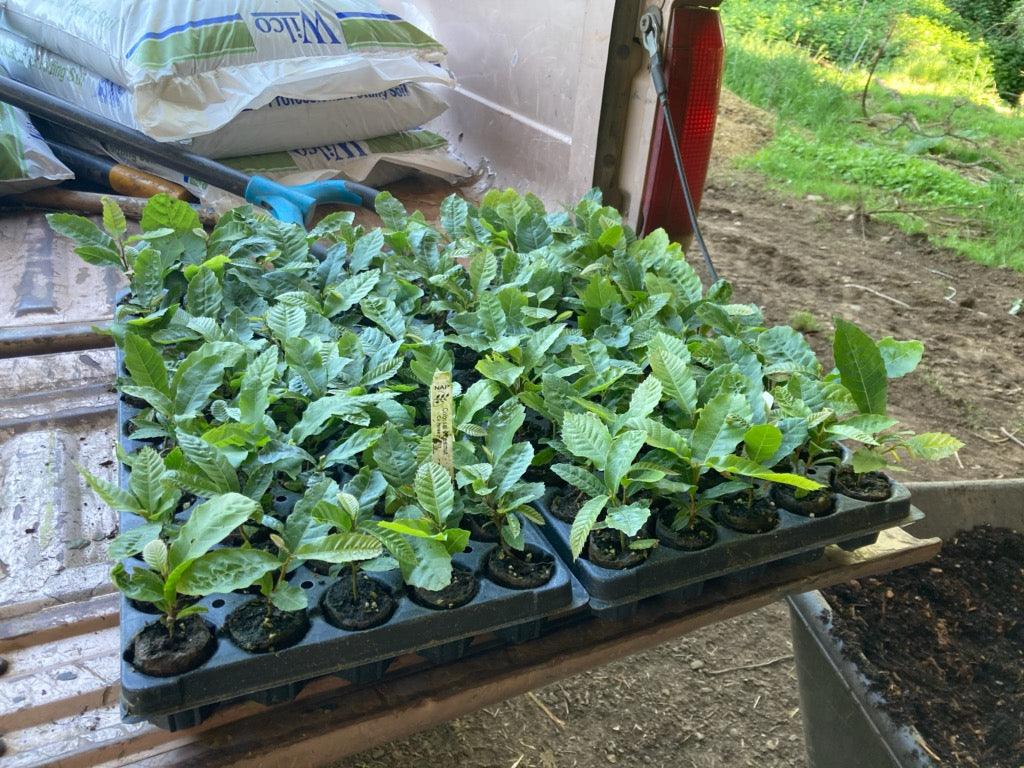
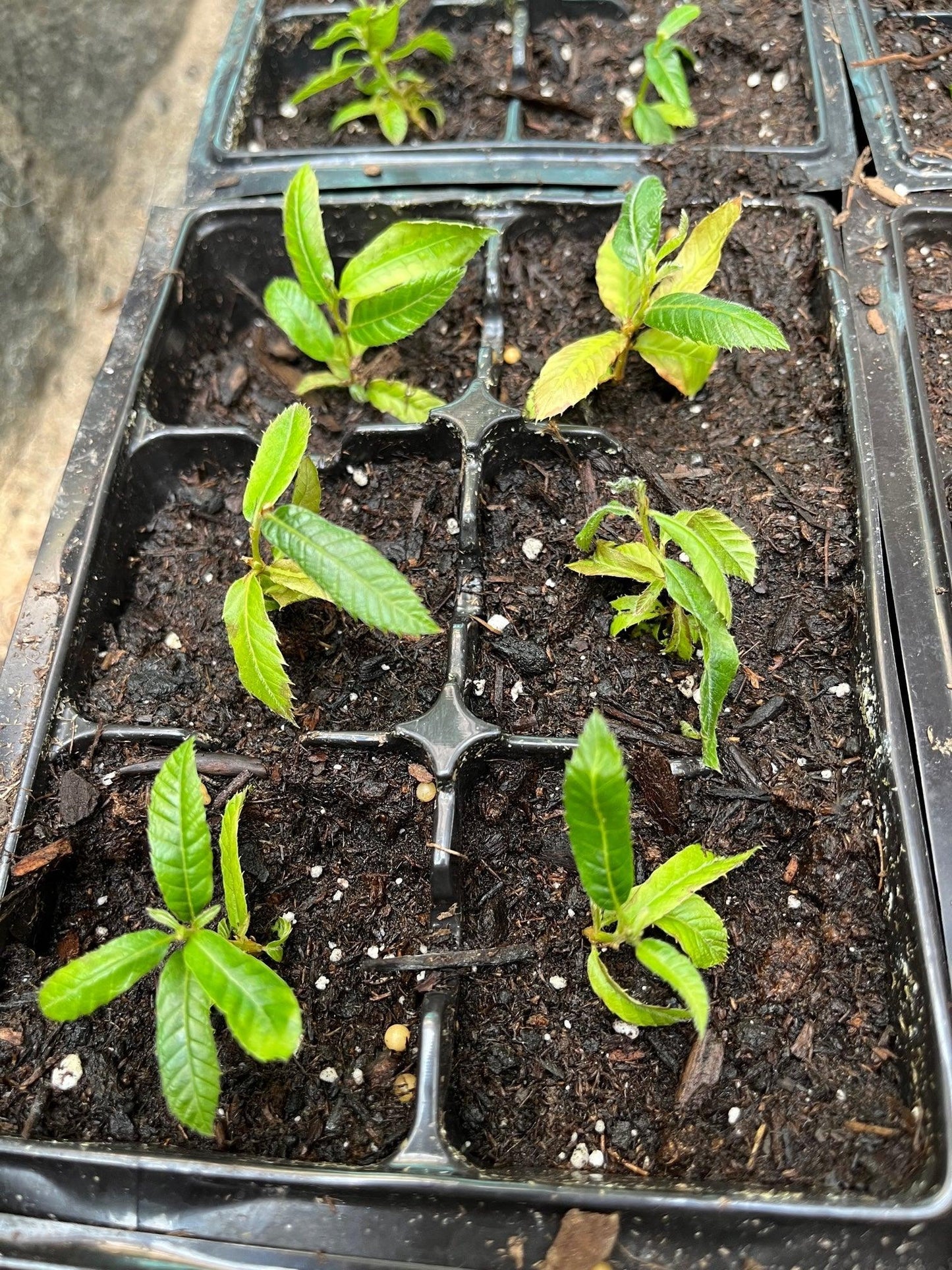
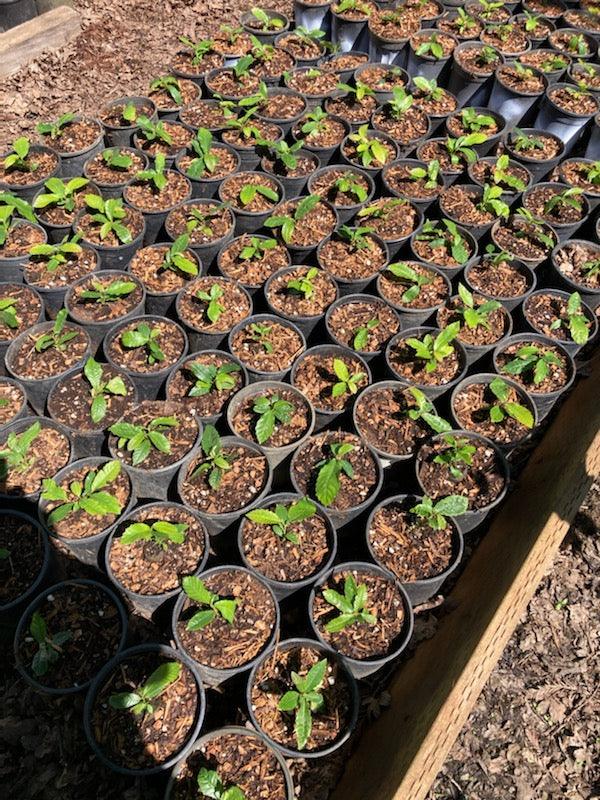
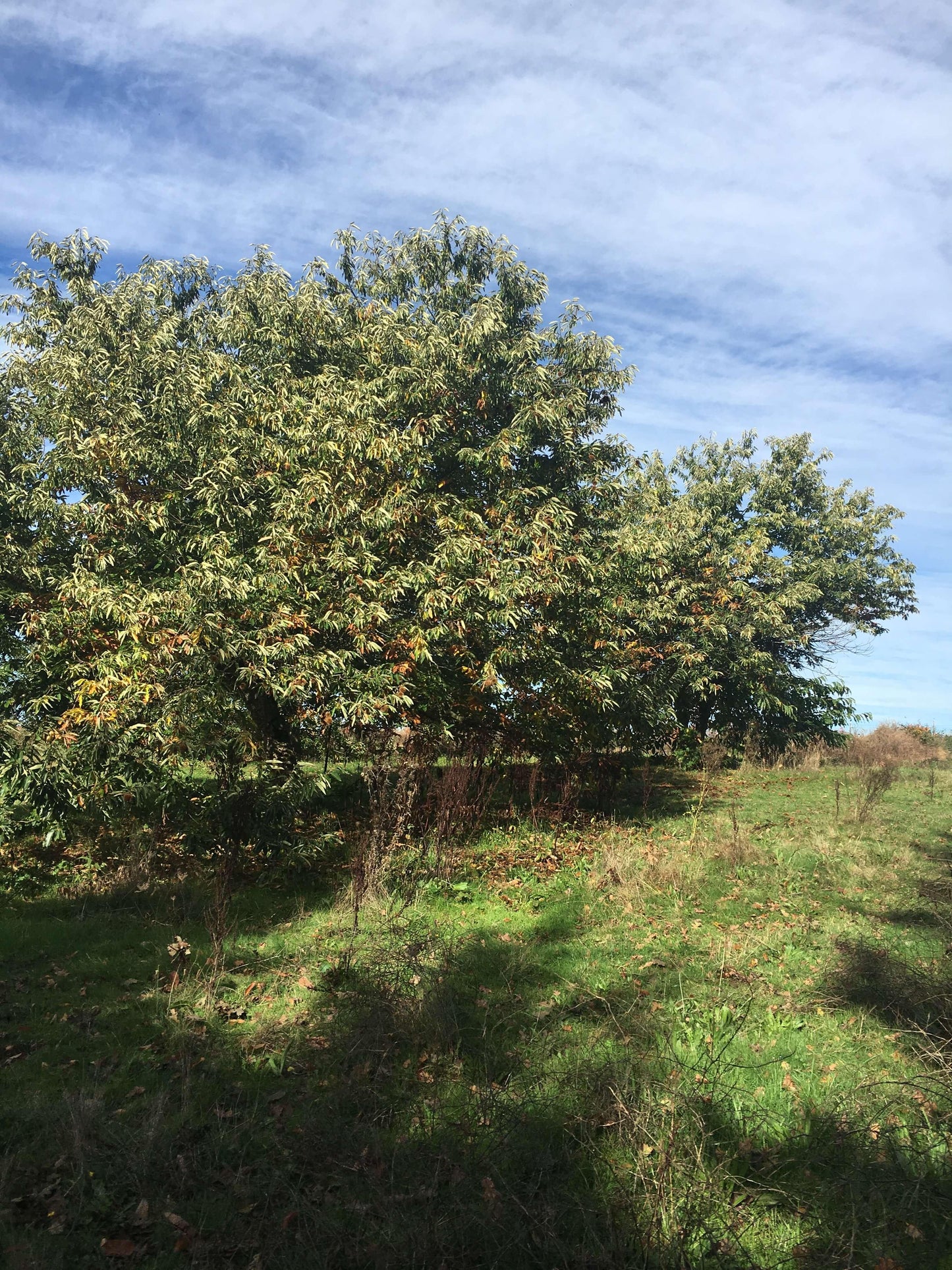
-
Free Shipping
That's it. The shipping is free.








